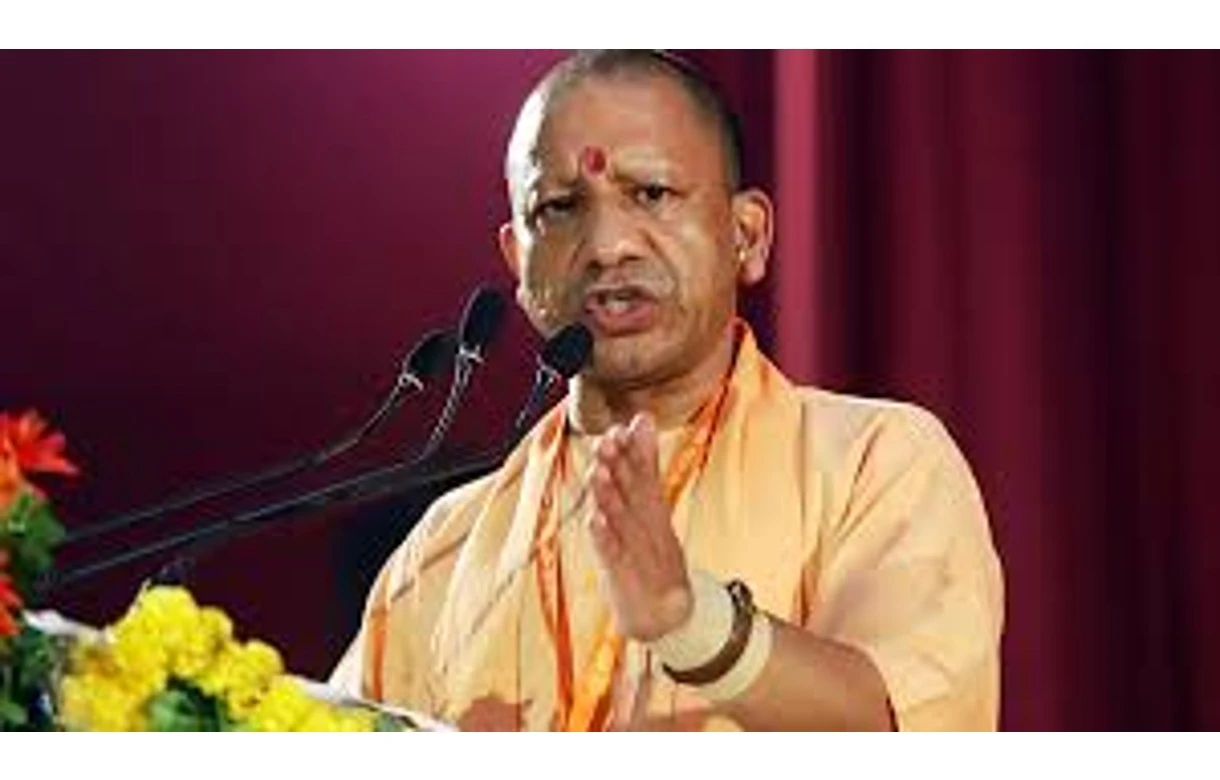Uttar Pradesh Chief Minister Yogi Adityanath on Tuesday hit out at the Congress, accusing it of disrespecting B.R. Ambedkar, the principal architect of the Indian Constitution, both during his life and after his death.
During a press conference held at his official residence at 5 Kalidas Marg, he also claimed that Jawaharlal Nehru, India’s first Prime Minister, opposed Ambedkar’s inclusion in the Constitution Drafting Committee.
Adityanath’s comments came in the wake of a controversy sparked by Union Home Minister Amit Shah’s remarks about Ambedkar in the Rajya Sabha last week. Surrounded by ministers Swatantra Dev Singh and Asim Arun, the Chief Minister emphasised that the purpose of the press conference was to reveal what he called the unethical and unconstitutional actions of Congress and other opposition parties against Ambedkar.
“Dr. B.R. Ambedkar played a pivotal role in India’s freedom struggle, the formulation of the Constitution, and the foundational years of an independent India. Despite facing numerous societal challenges, he achieved the highest accolades in law, finance, and economics. His contributions to the nation are unmatched, and he is deeply revered by every Indian,” Adityanath stated.
He contrasted the Bharatiya Janata Party’s (BJP) respect for Ambedkar with the Congress party’s history of disrespect. Adityanath highlighted the BJP’s initiatives to honor Ambedkar’s legacy, including memorials in significant locations like Mhow, Nagpur, Mumbai, and London, where Ambedkar pursued his studies.
“Under BJP leadership, from Atal Bihari Vajpayee’s time to Prime Minister Narendra Modi’s tenure, we have made every effort to uphold Ambedkar’s ideals. In stark contrast, the Congress has consistently insulted him and minimised his contributions,” he asserted.
Adityanath pointed to examples of Congress’ alleged negligence, including its initial hesitance to include Ambedkar in the Constituent Assembly and the Drafting Committee, crediting Mahatma Gandhi for securing Ambedkar’s position.
He also recalled an incident during the UPA regime when a textbook depicted a derogatory cartoon of Ambedkar being prodded by Nehru, which was withdrawn only after widespread protests, leading to an apology from then HRD Minister Kapil Sibal.
The Chief Minister claimed that the Congress worked to defeat Ambedkar in elections, including the 1952 general elections for the Mumbai North constituency and the 1954 by-elections.
He alleged that even Nehru campaigned against Ambedkar to ensure his loss, asserting that the Congress consistently aimed to silence the voices of Dalits and marginalized communities.
Adityanath also criticised the Congress for not granting national honors to Ambedkar during his lifetime, stating, “It was only when a government supported by the BJP came to power that Ambedkar was finally awarded the Bharat Ratna.”
He further emphasised the BJP’s commitment to realizing Ambedkar’s vision through programs aimed at benefiting Dalits and marginalized groups, reiterating the party’s dedication to preserving Ambedkar’s legacy while accusing the Congress of ongoing disrespect and divisive politics.

























